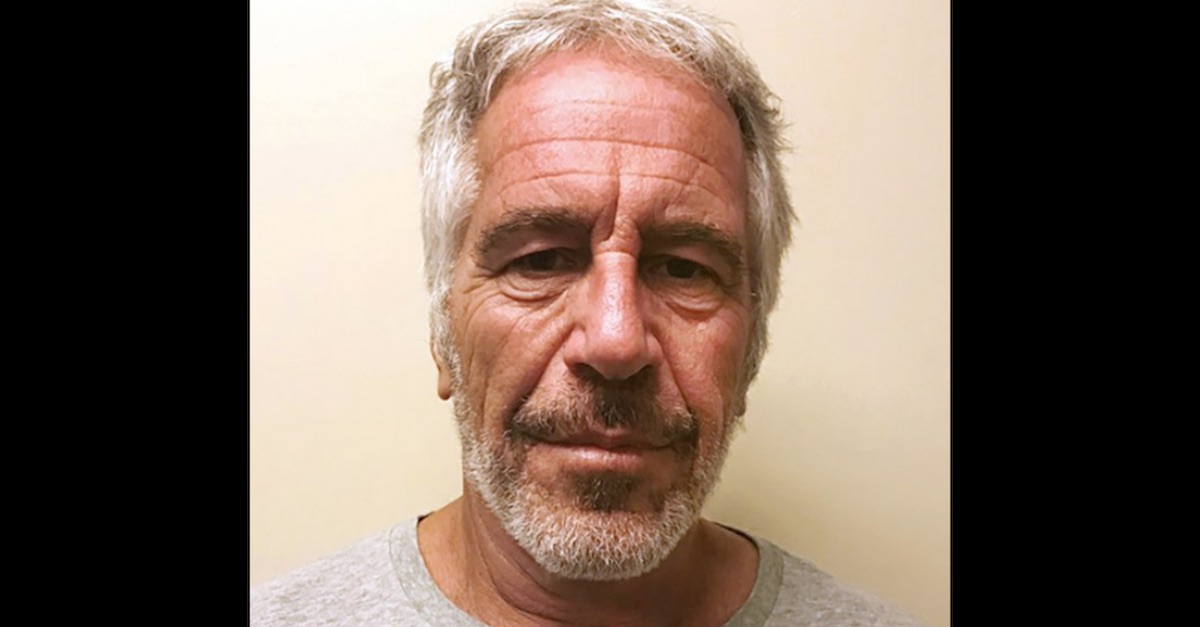
Nine women are suing the estate of Jeffrey Epstein based on decades-old abuse allegations dating as far back as 1978.
“In or about 1978, and continuing for a period of time thereafter, when Plaintiff Jane Doe XIV was approximately thirteen years old, Epstein sexually assaulted, abused, battered and raped her multiple times,” the lawsuit alleges. “As a result of the aforementioned sexual abuse, Plaintiff Jane Doe XIV suffered, and continues to suffer from severe and serious injuries including, but not limited to, severe emotional distress and physical manifestations thereof.”
This appears to be the oldest known allegation of sexual abuse against Epstein. The 1978 claim is three years after Epstein taught teens at the Dalton School, an elite institution that was helmed by Attorney General William Barr’s father Donald Barr.
Another Jane Doe plaintiff alleges that Epstein began sexually abusing her even before she was a teenager.
“In or about 1993, when Plaintiff Jane Doe XIII was approximately eleven years old, Epstein sexually assaulted, abused, battered and digitally penetrated her on three, separate occasions,” the lawsuit continues. “Epstein also forced Plaintiff to perform oral sex on him.”
Three of the other plaintiffs claim to have been sexually abused by Epstein as part of his “massive sex trafficking network” while they were minors; four women say they were sexually assaulted by Epstein when they were adults. According to the lawsuit, the sexual abuse against some of the plaintiffs continued until 2004.
Per the filing, at length:
Plaintiffs were all sexually battered, assaulted and abused by Epstein as a part of the same conduct, occurrence, plan, scheme and/or transaction that was perpetrated, conducted, organized and/or performed in New York, Florida, New Mexico, South Carolina, California, the United States Virgin Islands and other places by Epstein and his associates. Over the course of several decades, Epstein orchestrated a massive sex trafficking network to obtain hundreds of underage girls and young women for not only his sexual gratification, but also that of several other wealthy and/or powerful individuals within his social network to whom he trafficked these same underage girls and young women to.
Filed late last week in New York City, the 48-page lawsuit preemptively anticipates a defense likely to be leveled by the executors of Epstein’s estate–Darren K. Indyke and Richard D. Kahn–who are also named as defendants in the complaint.
“Defendants are equitably estopped from asserting a statute of limitations defense,” the filing goes on. “Allowing Defendants to do so would be unjust.”
The concept of equitable estoppel is a legal doctrine that precludes a party who has acted unfairly against another party from taking advantage of relief otherwise available under the law.
Here, the Jane Doe plaintiffs claim that Epstein and his clique of powerful friends and hangers-on actively worked against the alleged survivors to effectively browbeat and scare them away from previously taking legal action against the dead pedophile.
Per the lawsuit:
Epstein and his co-conspirators repeatedly intimidated his victims, including Plaintiffs, into silence by threatening not only their lives and livelihoods, but the lives and livelihoods of their close family and friends. Therefore, Epstein and his co-conspirators prevented Plaintiffs from commencing this lawsuit before his death. By using threats in accompaniment with his wealth and power, Epstein was able to escape punishment for his abhorrent brutal and perverse crimes against countless underage girls and young women, including plaintiffs, for the duration of his life.
Aside from doctrinal constructs created by courts, however, such long-ago claims would have, for most of U.S. history, been precluded under statutes of limitations on the books.
But in 2019, New York State passed a sweeping series of statutory revamps that drastically increased the length of time for survivors of sexual assault to file both criminal and civil claims against their alleged abusers. One of those laws, the Child Victims Act, allows for survivors who were abused while they were children to file lawsuits until the age of 55.
Here, the eldest Jane Doe plaintiff would appear just make it under the wire for filing such a claim against Epstein’s estate.
The lawsuit is scant on details but outlines a grand total of 27 different claims against Epstein, his estate and the executors. Each of the nine Jane Doe plaintiffs is suing for one claim of assault, one claim of battery and one claim of intentional infliction of emotional distress against the defendants.
And, they have also telegraphed their intent to seek substantial discovery in the process of their case.
“Plaintiffs intend to take full discovery of the Estate and all associates, family members and/or friends associated to the same to determine who knew what and when,” the filing notes. “At all material times herein mentioned, Epstein, and his associates, operated, transacted business, owned, used, maintained and/or possessed real and other property, equipment and apparatus within New York, which he utilized as the base of his operations for his sexual exploitation of underage girls and young women.”
Read the full filing below:
Nine Jane Does v. Epstein by Law&Crime on Scribd
[image via mugshot]
Have a tip we should know? [email protected]